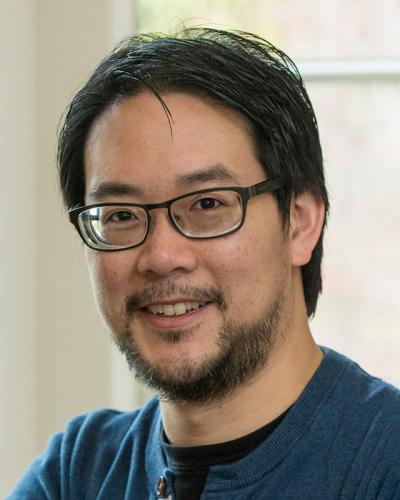I am the PI and founding Director of the Software Sustainability Institute, a national facility for research software.
Prof Neil Chue Hong

About Me
The SSI provides world-leading resources and guidance to users and developers to drive the continued improvement and impact of research software. I work with research communities across the UK and globally to advocate for research software through developing guidance and policy; collaborative partnerships; and long-term engagement.
My current research interests are in community engagement and development, software sustainability and the role and impact of software as a research object. I collaborate with Dr James Prendergast at the Roslin Institute to develop statistical tools to understand disease genetics. I co-chair the FORCE11 Software Citation Implementation WG, RDA Software Source Code IG and FAIR for Research Software WG. I am the Editor-in-Chief of the Journal of Open Research Software, and the co-organiser with Prof Jeff Carver at the University of Alabama of the Software Engineeering for Science (SE4Science) series of workshops.
I am the current chair of the UKRI/Met Office ExCALIBUR Steering Committee, and a member of the BBSRC Transformative Technologies Strategic Advisory Panel, Helmholtz Federated IT Services Scientific Advisory Board, EOSC FAIR WG and OECD Expert Group on Digital Skills for Science. Previously, I was the chair of the EPSRC e-Infrastructure Strategic Advisory Team and a member of the EPSRC-STFC Computational Science Centre for Research Communities Steering Committee. I am / have been a member of various other advisory boards, including: Research Software Alliance, Software Preservation Network, US Research Software Sustainability Institute, TrustedCI, Open Grid Forum, and The Carpentries.
From 2007-2010 I was Director of the OMII-UK, based at the University of Southampton, which provides and supports free, open-source software for the UK e-Research community. During this period, I was Technical Manager of the JISC-funded NeISS social simulation project, and Project Manager of the JISC-funded ENGAGE initiative, which interviewed 50+ researchers across the UK and commissioned 14 exemplar projects which addressed the current barriers to the use of e-Infrastructure in research domains including chemistry, Earth systems modelling, digital humanities, and medicine.
Prior to this I was a Project Manager and Consultant at EPCC working primarily in the Software Development Group. The focus of my work was in the area of Grid Computing; I led the Data Access and Integration projects (OGSA-DAI, DAIT) at the centre and was the development WP leader of the EC FP6 NextGRID project. I also worked with Scottish SMEs, primarily on machine vision and image processing projects, and in areas as diverse as: fishing net simulators, drilling control software, heart analysis, image archiving, semiconductor probe inspection, genetic expression in mice and mushroom sorting.
I have taught courses on Practical Software Development, Scientific Visualisation and Introduction to the Grid, and supervised various student projects for the EPCC Summer Scholarship Programme, the MSc in High Performance Computing, the MSc in e-Science and the Google Summer of Code.
Previously, I gained experience in the Business Systems department of Elida Faberge and was first at EPCC as a student on the Summer Scholarship Programme. I completed an MPhys degree in Computational Physics from the University of Edinburgh.
In my spare time, I used to work to provide better access to films across Scotland and was a trustee of the world's oldest purpose-built students union. Now I play a lot of badminton, work as a jury coordinator for the Edinburgh International Film Festival, and write flash fiction and plays.
Research Area: Research Software Engineering and Software Sustainability
Software is now a fundamental part of research. My research focusses on understanding how software is used in research, what practices improve reusability, reliability and reproducibility, and how software policy impacts software practice in research environments. This research area encompasses aspects of empirical software engineering, bibliometrics, organisational science, knowledge translation, and communities of practice. It uses methods including mining software repositories, analysis of software code, text mining, surveys and interviews. For more information please see my Edinburgh Research Explorer page.
I’m interested in research projects on topics including:
- Understanding the scale and impact of software used in research
- Improving Equality, Diversity and Inclusion for people developing research software
- Demonstrating the effectiveness of software engineering practices in research environments, particularly around reusability and maintainability
- Measuring the impact of policy changes on software practices and sustainability
- Mechanisms for software citation, attribution and credit
- Improving teaching and training for research software engineers and developers
- The impact of Artificial Intelligence and Machine Learning on the development of research software
PhD Students
- Felicity Anderson